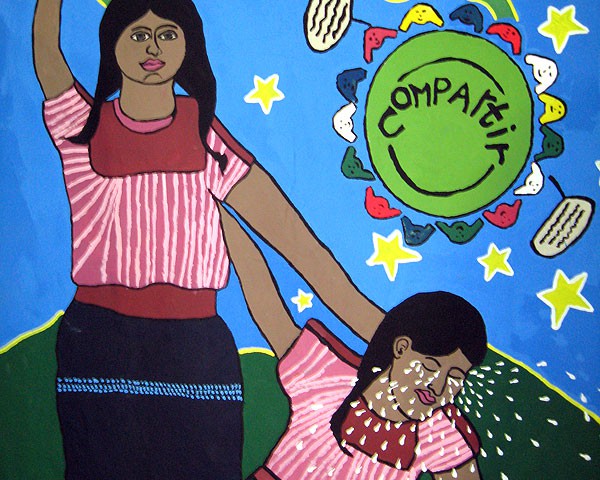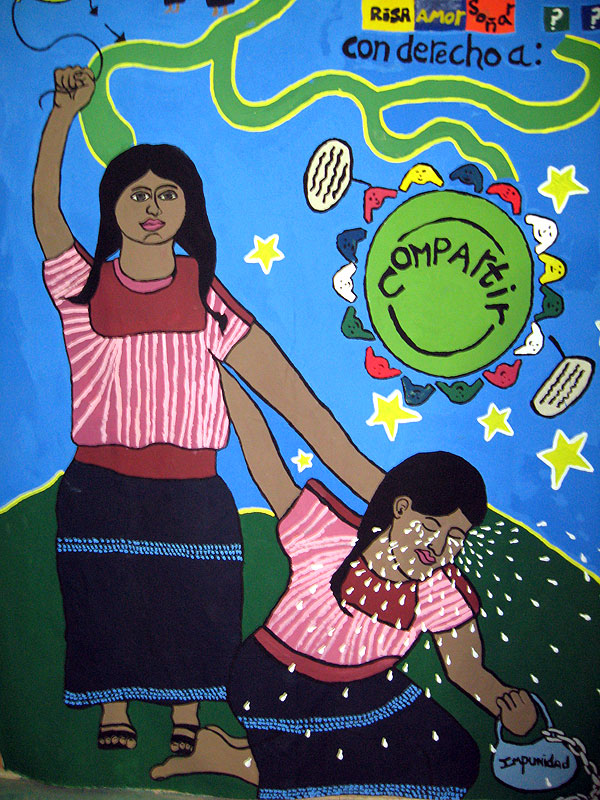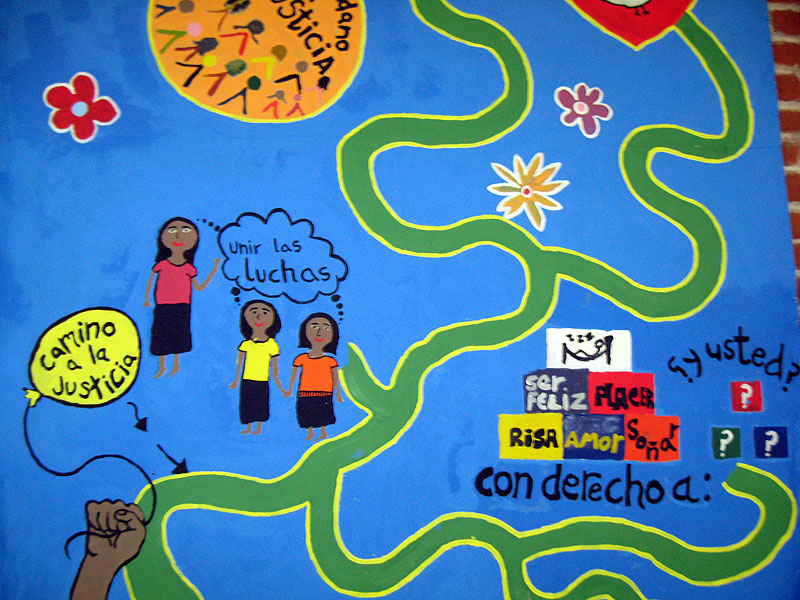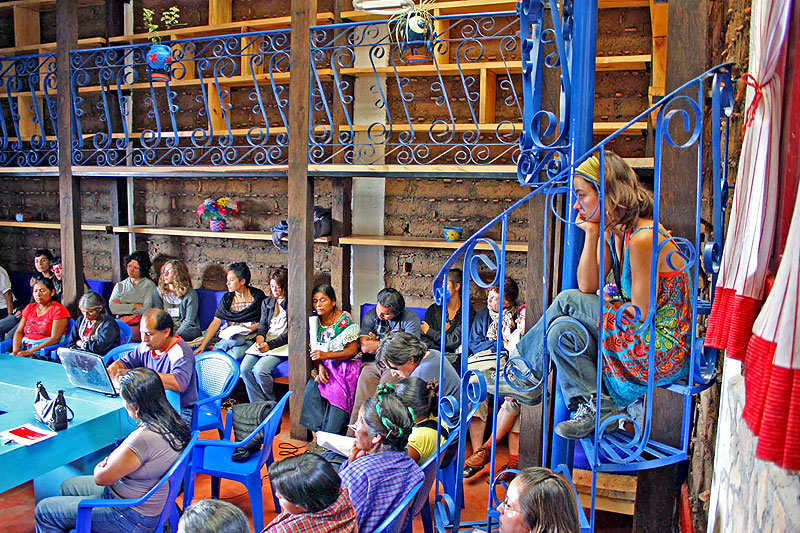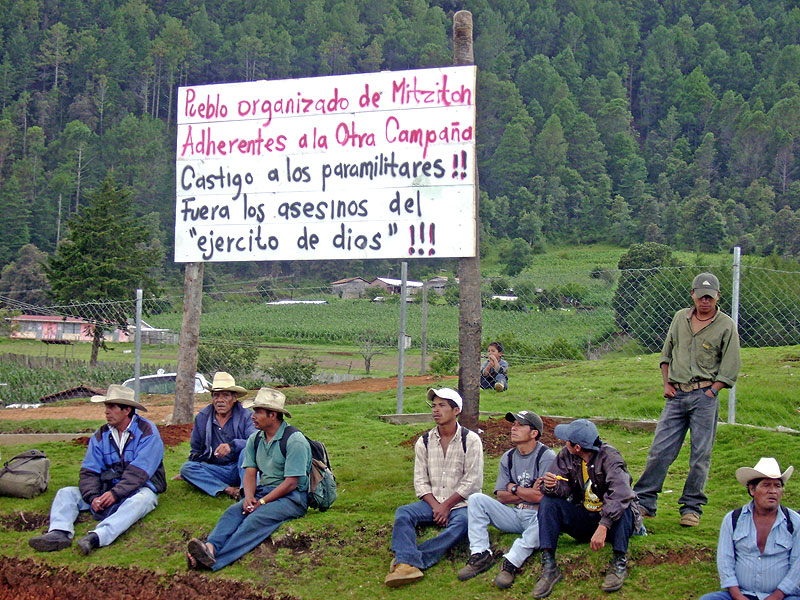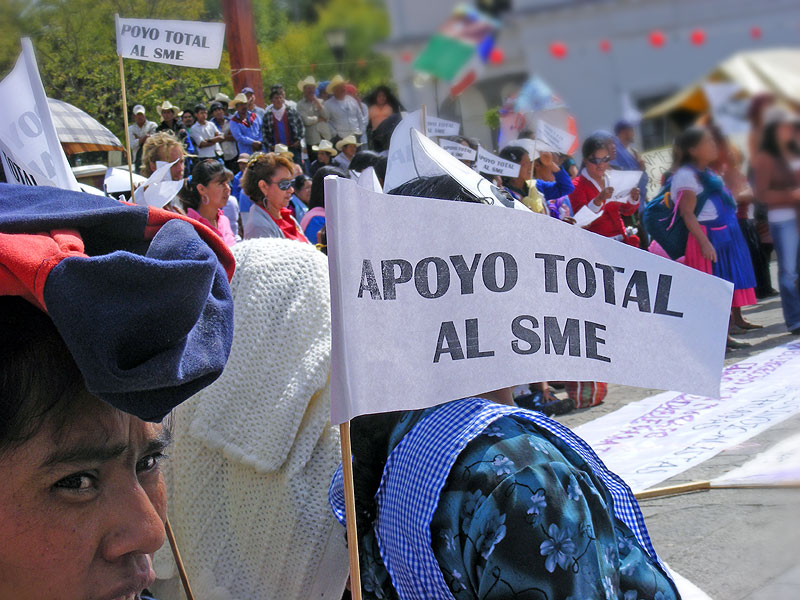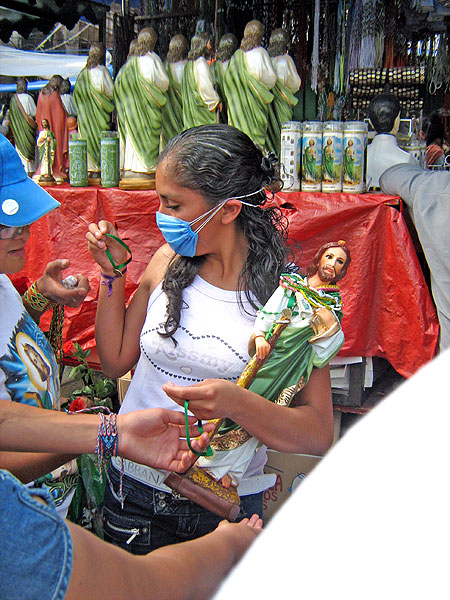
ANALYSIS: Mexico – Of the influenza and other problems
31/08/20092009
04/01/2010“The system has not only imprisoned the headquarters that have been built in our territories, but also the hearts of our women and mothers, yet we will set them free.“
Forum: “Women’s Perspectives on Militarization”
Facing the increasing militarization of the country, officially justified by the war that Felipe Calderón declared on drug trafficking, women want to cease being paralyzed by fear. On October 2nd and 3rd, 2009, in San Cristóbal de Las Casas, 160 women gathered in the forum “Women’s Perspectives on Militarization.” They came from Honduras, Guatemala, Chihuahua, Mexico City, Guerrero, and various other communities in Chiapas “to share the ideas and experiences of women and their communities about militarization, Para militarization, and drug trafficking, to analyze and take a close look at the consequences of militarization, and to plan alternatives.”
On the first day, the women exchanged ideas about the well-known and miserable consequences of militarization: sexual abuse as a form of torture—with moving testimony from Valentina Rosendo Cantú, of Guerrero, prostitution in the surroundings of military camps, the exacerbated interfamilial violence in military families, the rise in migration, the criminalization of social struggles, diseases such as AIDS as well as stress, impunity . . . etc.
On the same day, a reflection on the causes of these consequences led to an extensive and systematic lecture on militarization. The forum analyzed what is meant by: “a business in”; “a means of securing and reproducing the de facto domination by the government, and the rich”; “a means of strategic control for strengthening the capitalist system” (control of natural resources, labor, territorial control of the production and trafficking of drugs, social control of social movements); and also analyzed why normalization of a military presence generates a certain acceptance from civil society.
Besides the deployment of troops in the territory and the direct harmful consequences it causes, the women denounced a society based on relationships of violence and domination: “Today, we live in a militarized society which reproduces power, force, and violence as a way of life.” Framed by this lecture, the second day’s proposals for action invites everyone to a profound transformation of reality.
Proposals towards a Transformation of Reality
“We must be the change we want to see in the world.” At the beginning of the twentieth century, in India, those were the words of Gandhi, one of the principle figures of non-violent struggle and ideas. In 2009, in Chiapas, Mexico, a gathering of women committed to work together towards the “total demilitarization of our communities, ways of life, and hearts.” Although nonviolence was not the explicit framing for the forum, the theme continued echoing throughout the meeting, as it is the way for building lasting peace.
From the conclusions of the round tables on possible judicial, political, and community actions, a general attitude and two main strategic ideas were underscored. As to the general attitude, the following was proposed:
- Do not reproduce the schemes of violence and militarization in the family or the community, or, in other words, domination and submission, whether between women and men or adults and children.
- Support creativity. For example, in the area of judicial action, which is known for being fairly limited and predetermined, was the proposal of initiating civil lawsuits. Another example was the showing of works of art to denounce or raise consciousness.
- Do not deny nor give way to fear, rage or other emotions. For this, the necessity for women to share life experiences in order to support each other and organize together was emphasized.
- Break the silence regarding spirituality.
The first strategic idea was the reaction to the very same militarization. It involves acts of information sharing and consciousness raising (meetings of women in the community to speak about the forum, understanding what the law permits and does not permit of soldiers, sharing useful telephone numbers etc.), acts of resistance (such as refusing to sell products to soldiers if they establish themselves in the community or participate in security cordons), and acts of denouncement (make the sexual violations by soldiers public, peaceful marches, etc.).
The second strategic idea posed a long-term transformation of reality. It covered acts of education (not allowing children to play with toy weapons, teaching them how to listen to each other and to think before obeying) and training (for example, about human rights or conflict resolution), as well as political proposals (eliminating military service and the army, creating social equality). In addition, certain manners of consumption were proposed (building alternatives for economic solidarity) since, in the words of Mercedes Olivera B, “the military globalization dominates, not only in the public sphere, but has penetrated the private and intimate spheres. . . . All are buyers, consumers, voluntary or involuntary reproducers of the system, although we are in resistance. Mothers not only are reproducers of slaves to capitalism, but also are forced to raise them with the ‘skills’ that the system needs.” So, it is a matter of paying attention to the identified causes of militarization that form a part of the structural violence and that in the cultural violence.
This willingness to come together to face and reveal the militarization from its causes to its manifestations corresponds to a wager: to believe in power in numbers and in the truth verses the power of weapons and force. The ability of women to analyze the militarization and formulate non-violent and constructive proposals results in a strategic response in the context of such great tension.

